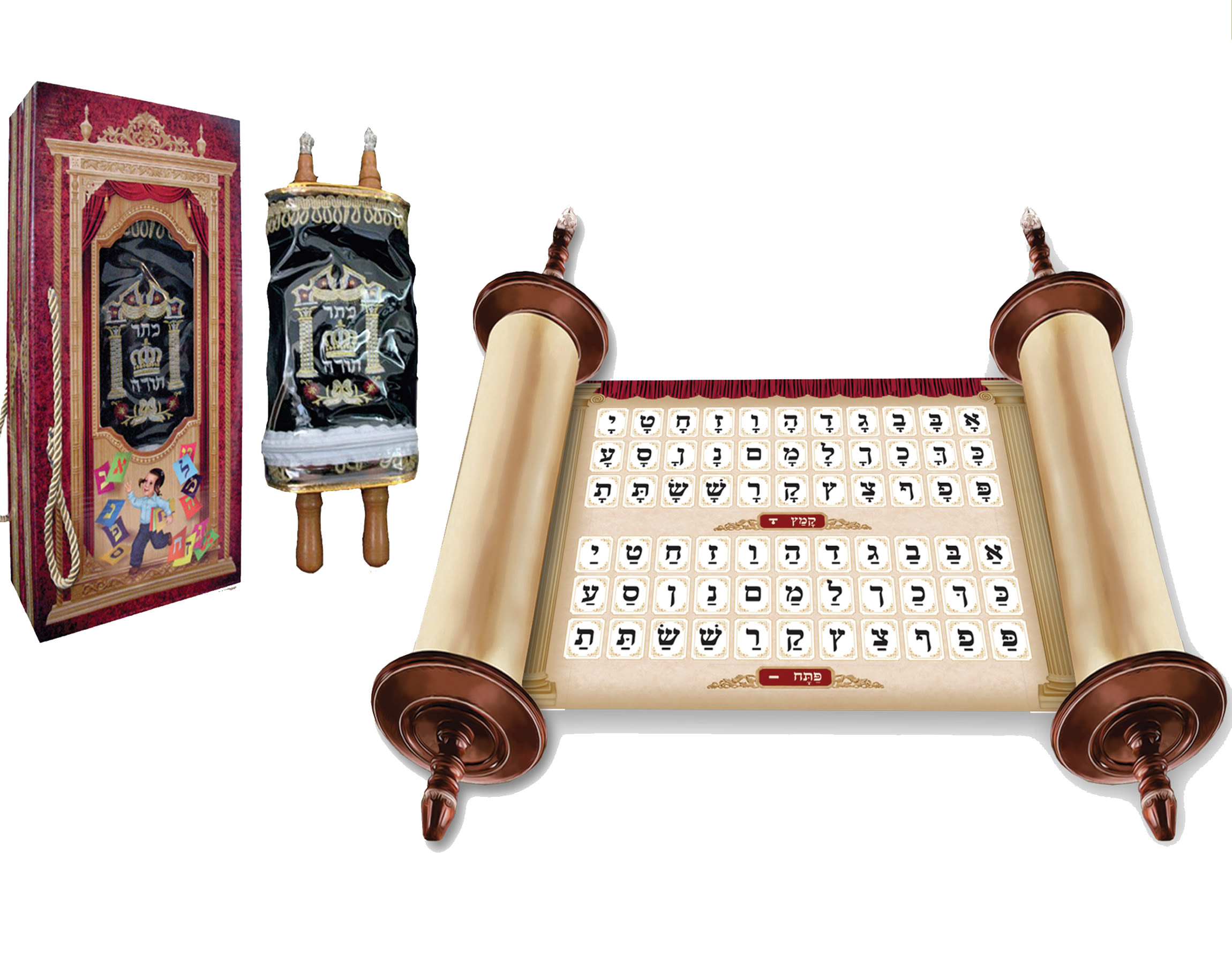
Angry People and Tyrants
Angry people and tyrants frequently project their own weaknesses, insecurity, and character flaws on others, and then arrive at mistaken...

With this excerpt, we conclude the last two points of the Similarities between Angry People and Tyrants.
Point Four: Judgments based on stereotypes and preconceptions.
The Repaid Loan: Julio Gonzales[1] was the first Mexican American to graduate Summa Cum Laude from the School of Law at Georgetown University. After his admission to the District of Columbia bar, he was also the first Hispanic attorney to be accepted for clerkship at the prestigious Connecticut Avenue firm of Webster, Baxter, and Jones.
Julio’s diligence, dedication, and integrity were apparent from his first day on the job. He functioned in his bottom-rung status with dignity, performing the most menial of tasks with seriousness. The senior partners began to pay close attention to Julio, thinking that his clerking days were numbered.
Julio had been with the firm for six months when he received a call from El Paso, Texas, informing him that his father was gravely ill, and urging him to come home immediately. He opened his frayed billfold and found a mere twenty-dollar bill. His checking account was bone dry, for he just paid a three-month advance on his newly rented studio apartment near Georgetown. He needed at least five hundred dollars for the round trip to El Paso, and payday was ten days away.
Julio asked the executive secretary for a five-minute audience with Mr. Paul Baxter. The senior partner received him readily and cordially, and complimented him on his progress. Julio explained his problem, requested permission for a short leave of absence and a five hundred dollar advance on his coming paycheck. Baxter granted the former request, but denied the latter, explaining that wage advances are contrary to the firm’s policy. Julio’s disappointed expression seemed to ask, “How am I supposed to get home to see my dying father?”
Mr. Baxter was a father himself, and sympathized with Julio’s situation. “I’ll tell you what, Gonzales. I’ll give you a private, no-interest, five hundred dollar loan for thirty days. You can repay me from your next paycheck.” Baxter pulled out a locked metal strongbox from one of his desk drawers, opened the miniature combination lock, and withdrew five one hundred dollar bills. He then drew up an IOU, which Julio signed. Baxter folded the IOU, placed it on top of the cash, and returned the strongbox to its drawer. Julio thanked him profusely.
Julio reached El Paso the day before his father died. He arranged for the funeral, and stayed a few more days to console his mother. A week later, he returned to Washington, D.C.
The young attorney welcomed his heavy workload, which diverted his grief of the loss of his father. The minute he received his next paycheck, he wrote his own personal check for five hundred dollars to the order of Mr. Paul Baxter. Julio looked at his watch; it was six thirty in the evening, and most of the staff had already left the office. “Maybe the boss is working late,” he thought. He decided to peek inside Mr. Baxter’s office door.
The door was open a few inches, and Julio sheepishly stuck his head inside. Baxter was engaged in a heated phone conversation, but he gestured for Julio to come inside. “Under no circumstances,” Baxter said forcefully, “we won’t accept a compromise…excuse me, one moment, please.” Baxter covered the mouth piece of the telephone with his hand, and raised his head, “What is it, Gonzales?”
“Sorry for the interruption, sir, but I wanted to repay the loan immediately.” Julio handed the check to his boss. Mr. Baxter nodded, and returned to his phone conversation, letting Julio understand that he should close the door on his way out. “Thank you sir,” Julio said. He wanted to ask for the IOU note, but was embarrassed to do so, for the boss was demonstrating obvious impatience. “Sir, could you please destroy the IOU?” Baxter nodded perfunctorily, and Julio left the office.
Baxter unwittingly put Julio’s five hundred dollar check in an open file on his desk, marked, “Gerson vs. The State of Maryland.” He was engrossed in a telephone face-off with the State’s Attorney in Annapolis. “We both know that the State of Maryland is liable. Agree to a five hundred thousand dollar settlement, or I’ll see in you court…that’s fine with me, Mr. State’s Attorney – do I agree to an initial hearing in twelve weeks? Mark it down on your calendar and send me immediate written confirmation.” Baxter closed the file, placed it amid the foot-high mound of documents on his desk, grabbed his tennis racquet and gear bag from the coat closet, and left the office.
Six weeks later, Baxter pulled his strongbox out of desk drawer, and unlocked it. A signed IOU for five hundred dollars glared up at him. “Son of a…” fumed Baxter, “this note is more than a month overdue! How can I trust such a person on a million-dollar brief, when he can’t keep his word to repay five hundred dollars on time?”
John Webster, founder of the firm, entered Baxter’s office that very moment. “What’s the matter, Paul? Looks like the secretary forgot to put sugar in your coffee.”
“I wish that were the problem, John.” Baxter told Webster about the “unpaid” loan.
“Paul, I don’t like to pour salt on your open wound, but remember that Dick Jones and I had severe reservations about hiring a clerk with a barefoot, adobe background.”
“C’mon, John, that’s unfair. The boy was top of his class at Georgetown. A WASP clerk with his credentials would’ve cost us twice the money. Besides, this is the twenty-first century. We don’t want our firm to have a Jim Crow image.”
“Are you trying to convince yourself, Paul? If I were you, I’d cut my losses at the five hundred bucks. Send him packing.”
Baxter didn’t need much more of a push to stick a knife in Julio’s back. “Okay, I concede the point, John. When it boils down to basics, you can take the boy out of the boon docks, but you can’t take the boon docks out of the boy. You’re right; he’s not for us. I’ll drop the ax on him today.”
Julio received the news of his immediate dismissal like lightning on a clear day. “What did I do wrong, Mr. Baxter? This firm has become my life! I eat, drink, and sleep my work. Why are you doing this to me?”
Baxter flashed the IOU in Julio’s face. “This is why. It’s your signature here, isn’t it?”
“Yes sir, but that’s a mistake!” Julio happened to have his checkbook in the inside pocket of his blazer. “Look here – here’s the stub of the check I wrote more than a month ago – five hundred dollars to Mr. Paul Baxter! I came right here in the office, and put it in your hand!”
“Gonzales, you are now reinforcing my decision to sack you. Not only are you untrustworthy, you’re a liar, too. I don’t want the five hundred dollars. I want you out of here in fifteen minutes.”
Julio’s world crumbled before his eyes. Here he was, out on the street with no recommendation, a blemished career, and a vicious blow to his reputation. What will happen when all of Washington discovers that Webster, Baxter, and Jones threw him away like a used rag?
“I’m going to be strong,” Julio told himself. “I did nothing wrong. I repaid that loan. My beloved God is my witness. I love Washington. I’m not going to leave like a fugitive in the dark. Whatever will be, will be!”
Julio took a walk along the picturesque Potomac River, collecting his thoughts and communing with his Creator. “That’s it! I don’t spend much, anyway. I can live on bread and water if I have to. I’m going to be self-employed! I’ll start at the bottom with my own little office.”
Within a week, Julio had rented a shabby apartment on top of a grocery store in a slum neighborhood. Half of the apartment served as his office, and the other half became his living quarters, until he could afford something better. He began to represent the junkies and the petty thieves of the neighborhood, and more times than not, with no remuneration. Slowly but surely, he was earning the affection and admiration of the community. Within a matter of weeks, area merchants were turning to him for legal aid and advice. Julio tasted success in all of his endeavors.
* * *
Several months later, Paul Baxter drove to Annapolis for the Gerson vs. The State of Maryland hearing. Accompanied by a junior partner and a clerk, he took his seat by the plaintiff’s desk and opened the thick folio file in front of him. A slip of light blue paper peeked out from among the laser-printed pages. Baxter examined the paper, and his cheeks turned a bright red. It was a check made out in his name for five hundred dollars, drawn on the Julio Gonzales account at the Georgetown Branch of the National Bank of Washington!
Baxter could barely breathe. His neck became so hot that – courtroom or not – he unbuttoned his collar button and loosened his tie. The combined feeling of embarrassment and guilt was suffocating. Gonzales did repay the loan. Now he remembered, just as he was arguing on the phone with the State’s Attorney…
“Counselor!” The presiding judge was trying to get Baxter’s attention, but the latter was daydreaming. Baxter’s preoccupation with the Gonzales affair severely weakened his presentation at the hearing.
George Gerson was incensed with his attorney’s miserable showing. “Baxter, I don’t think you even read the daggone brief! My cleaning lady could have argued the case better than you did! If we lose, you can erase my name from your client roster! You’d better mend some fences, and fast!” Gerson stormed away.
Paul Baxter mistakenly thought that the Gonzales matter would somehow evaporate. He enjoyed no such luck. All three senior partners suffered an inexplicable series of setbacks that jolted the stability of the firm. After a number of sleepless nights, Baxter told Webster and Jones about the reappearance of the five hundred dollar check.
Dick Jones made no effort to hide his irritation. “I wasn’t crazy about the idea of hiring him, but nobody consulted me about firing him, either. I’m not much of a believer, but it sure looks like we’re paying tenfold for the damage we did to that young man. Find him, and rehire him right away, with three months of back pay!”
Webster nodded in agreement, and the task of locating Gonzales fell in Baxter’s lap. He who spills the milk must grab the mop.
Baxter’s secretary dialed the number she received from telephone information. Julio answered the phone. She identified herself, and passed the call to her boss. Julio wasn’t surprised in the least.
“Mr. Gonzales, uh, th-this is Paul Baxter speaking.” Baxter tried to sound composed, but a lump of embarrassment in his throat hindered his speech.
Julio replied as if he were to speaking to his favorite uncle: “Hello, Mr. Baxter! What a pleasant surprise! What can I do for you?”
“I don’t know how to say this, but I must beg your forgiveness. I found your repayment check misplaced in one of my files. I wrongly accused you of shirking your obligations and of lying. I was terribly wrong.”
“Mr. Baxter, I’m not slamming the door in your face, but your conciliatory phone call certainly isn’t adequate compensation for the anguish and humiliation I suffered in public.”
“We’re prepared to reinstate you, with back pay and seniority…”
“No thank you, sir. I respectfully decline your offer. By the grace of God, my own modest practice is thriving. Although my clients don’t travel in your social circles, they are for the most part genuine human beings.”
Julio weighed his next words carefully. “Personally, all I ask from you is that you cash the five hundred dollar check. Getting the boot from Webster, Baxter, and Jones has proven to be the biggest blessing of my life. I know that you don’t think you have anything to learn from a twenty-seven-year-old muchacho like Julio Gonzales, but if you were a court judge, you would have convicted an innocent man. Think very hard if you would have acted like that if my last name were Marshall or Monroe. For your own good, promise yourself that you’ll never again arrive at such a hasty misjudgment because of stereotypes and preconceptions – that’s all the compensation I ask for.”
Baxter was positive that Gonzales would exploit the opportunity to extort an enormous settlement, even a partnership in the firm. Again, he grossly misjudged the aspiring young lawyer from El Paso. Baxter replaced the phone and put his head between his hands. “That young man is an angel,” he muttered. “I had better take stock of myself.”
Moral of the story:
Once Julio produced a check stub as proof of the written check, Baxter could have easily asked him to cancel the check and to write a new one as a replacement. After Julio’s six months of impeccable performance on the job, Baxter should have discarded the preconceptions and prejudices that subsequently ruined his powers of discern.
Much of the anger people harbor against others is unfounded, based on misconceptions rooted in stereotypes and preconceptions, all of which lead to faulty conclusions. When we dispose of our stereotypes and preconceptions, a significant portion of the anger in our lives disappears.
The above story teaches about faith, too. Julio was worried that his name and reputation were ruined at the outset of his career. He was surprised to discover the exact opposite, that his apparent misfortune was a blessing in disguise from God.
Julio never dreamed of opening his own practice. The Almighty didn’t need a recommendation letter from Webster, Baxter, and Jones in order to establish Julio in an ultimately satisfying and more lucrative situation, for our beloved Father in Heaven makes dreams come true. Not only was Julio’s name and reputation unscathed, his prestige grew with each passing day.
Although they never fully acknowledged the Hand of God, Webster, Baxter, and Jones sensed that their firm’s turn for the worse was rooted in the injustice they did to another human being. Life is like a gambling table – sooner or later, the dealer calls in our markers.
Point Five: Projecting our own weaknesses, insecurity, and character flaws on others, and arriving at mistaken conclusions accordingly.
The Story of the Flat Tire: Eric Carpenter[2] felt a thud from the right rear side of his Jeep, stopped the vehicle, and stepped outside to see what was wrong. The Mojave Desert Sun was at its noontime crest, mercilessly baking the already-parched desert. Sure enough, Eric had a blown tire.
To his dismay, the spare was flat too. “Maybe it just needs some air,” Eric mused. “Lucky I have my own pump.” He tried pumping the spare, but to no avail. The spare tire was punctured long ago, and Eric forgot to have it fixed. Here he was, stuck in the desert, a good six miles from the nearest filling station.
With no other alternative, he took the better of the two tires, his hiking belt, two canteens, and began the arduous trek to the gas station.
The blazing sun pounded on his head. With two miles completed and another four to go, his back throbbed in pain from the constant bending, while rolling the tire. “The station owner will probably charge me fifty bucks to mend this tire,” he pondered. With no competition for miles around, he was sure that the gas station owner would take advantage of him.
Another hour’s forced march in the heat of the desert transpired, and Eric still had almost two miles to go. He had consumed the contents of both canteens, and his throat was quickly drying again. “I’ll bet the station owner will really stick the knife to me. He’s bound to charge me eighty bucks for fixing the spare, and probably another fifty or sixty for driving me back to the Jeep.”
Eric’s brain felt like a baked potato; he no longer controlled the fantasies that flickered in his mind like a mirage on the horizon. With each step, he imagined paying a higher price for the tire repair and for the lift back to his car. By the time he caught sight of the filling station in the distance, his head had invented a price of three hundred dollars.
Exhausted, he reached the station. The owner ran to meet him with a cool bottle of water. “Hey mister, drink this! You look like you’re about to…”
Eric yelled at the station owner, “You can forget about me paying three hundred bucks for a lousy spare! What the heck do you think…?”
“Hold on there, mister,” protested the station owner. “I’ll fix your tire for twenty five bucks, and if your car isn’t more than eight miles away, I’ll skip you back for free! Folks around here are happy to help a friend in need.”
Moral of the flat tire story:
The combination of a difficult predicament, the desert sun, and growing anxiety blew Eric’s imagination out of proportion. Were Eric the station owner, he might have taken advantage of a person in a similar situation. He therefore projected his own character flaws on the station owner, convinced that he was about to be exploited. Eric was angry with the station owner before he ever met him, arriving at the station with a belligerent attitude. As in other cases of this type, reality proves that conclusions based on our own projected weaknesses are seldom accurate.
Summary of Chapter Seven
Let’s take another look at the five points, which serve as the key to uprooting our anger against our fellow man:
1. Angry people and tyrants base their judgments on superficial or circumstantial evidence.
2. Angry people and tyrants violate the principle of innocence until proven guilty. They never grant the accused the benefit of the doubt, and therefore consider him guilty until proven innocent.
3. Angry people and tyrants make judgments on the basis of insignificant or incomplete evidence. Often, they fail to consider a key fact that could completely overturn their verdicts against the accused.
4. Angry people and tyrants base their judgments on stereotypes and preconceptions, and often reach conclusions before examining the evidence.
5. Angry people and tyrants frequently project their own weaknesses, insecurity, and character flaws on others, and then arrive at mistaken conclusions accordingly.
The above five points boil down to a single rule, which serves as the key to success in any interpersonal relationship: Always judge the other person fairly, with at least the same lenience and understanding that you would judge yourself. If you’re not sure whether the other person is guilty of a wrongdoing, give him or her the benefit of the doubt, and you’ll walk away the winner, because you’ve uprooted your anger at your fellow man. When you judge another person fairly, you gain inner peace!
To be continued…
(The Trail to Tranquility is available in the Breslev Store.)
* * *
[1] “Julio” (names and places changed) and I became good friends through a mutual client, a prison inmate whom I was counseling and he was defending in court.
[2] Names and places changed. The author heard this story from the owner of the gas station.













Tell us what you think!
Thank you for your comment!
It will be published after approval by the Editor.